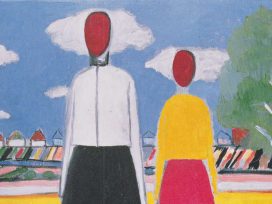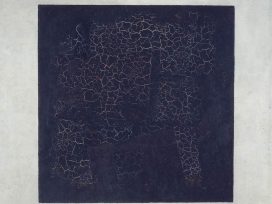The terror attacks in Paris, Nice and Lyon have brought back the nightmare of the Charlie Hebdo and Bataclan attacks five years ago. But, though deeply shocking in their cruelty and brutality, they came as no surprise. We have almost become accustomed to France being at the frontline of radical Islamists’ war against ‘the West’.
Vienna, however, was a different matter. Long spared the experiences of Paris, Brussels, London and Berlin, it had been tempting to consider the city exempt. This was partly because IS had treated Austria as a safe haven rather than a target. But part of it was an unwillingness to look too closely.
As readers know, Eurozine is based in Vienna. The sudden transformation of a familiar place into a terrorist crime scene has been shocking. But, as many of us suspected and the security services had been warning, it was only a matter of time.
The dogmatism with which France defends laïcité has contributed to the escalation of the conflict. To state this is by no means to condone the violence. But it is possible and necessary to condemn Islamist terror without insulting the Muslim faith. While free speech is non-negotiable, the cycle won’t be broken at the level of pure principle. The radicalization that has been set in motion on the social networks is what connects Paris, Vienna and wherever is next.
It is crucial that we do not confuse tit-for-tat for causality. That’s why we need to ask how European societies can produce young men capable of such crimes. After all, Kujtim F. was an Austrian citizen, born and raised in Vienna.
For many Muslims in France, laïcité is merely the official ideology of a system that segregates them from the mainstream. Denied the social and economic benefits of that system, they have nothing to gain from endorsing its credo. This disillusionment is the precondition for radicalization. Islamist terrorists may be homegrown, but they are remote controlled.
In Vienna, one third of the voting-age population is not entitled to vote on the grounds of nationality. That equals half a million people (non-voters make up a further 100,000). This figure has doubled over the last twenty years. In other words, an entire generation has entered adulthood disenfranchised. They are the new working class. Even the best intentions of a genuinely enlightened Social Democratic government cannot alter the fact that, throughout their lives, this generation will remain the passive object of policy making.
The excluded one-third is the elephant in the living room of Viennese politics. Resolving the problem would require a two-thirds parliamentary majority for constitutional change. And since none of the parties have anything to gain from extending the franchise (the consequences of which would be unpredictable), they kick the can.
This is not to argue that Islamist radicalization is a direct result of being excluded from representative democracy, let alone that Austrian electoral law had something to do with the events of 2 November. But it is an example of how a tendency to look the other way allows pockets to form within the population that are only talked about when they periodically end up on the receiving end of ‘integration’ measures. In Vienna, but not only there, of course. For those concerned, this is a source of humiliation and resentment.
It is unrealistic to think that the latest atrocities will prompt a sudden change. After all, little has come of Macron’s early rhetoric of inclusion. The immediate reaction is focused on uncovering the networks behind the terrorist attacks and identifying security failures. Rightly so. However, the uncomfortable question will also need to be raised as to how far there is sympathy for such deeds and why it exists. The alternative is to continue to believe that ‘it could never happen here’.
This editorial is part of our 20/2020 newsletter. Subscribe to get the weekly updates about our latest publications and reviews of our partner journals.






